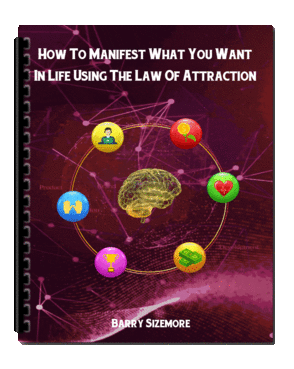Choosing to live as a meditation practitioner is a decision that encourages lasting harmony and fulfillment across all areas of your life.
At its core, this lifestyle emphasizes mindfulness, intentionality, and a deep connection with the present moment.
It’s about creating a rhythm of existence that prioritizes balance and empowers you to move through life’s complexities with grace and focus.
A meditation-centered approach offers more than just a sense of calm; it supports emotional balance, mental clarity, and even physical health, creating a strong foundation for a more meaningful way of living.
By aligning your daily habits with the principles of meditation, you cultivate an inner strength that helps you face challenges with greater patience and resilience.
Start your journey into this enriching lifestyle by exploring 12 transformational benefits that await you as a meditation practitioner.
1)) Reduced Stress
One of the most profound benefits of living a meditation practitioner lifestyle is the significant reduction in stress levels.
Through regular meditation, you train your mind to focus on the present moment, breaking free from the constant cycle of overthinking and worry that often fuels stress.
Meditation helps regulate the body’s stress response by lowering cortisol levels, the hormone responsible for feelings of anxiety and tension.
This practice shifts your mind into a state of calm and relaxation, allowing your body to follow suit.
Over time, this not only enhances your ability to manage external pressures but also helps guard against the long-term effects of chronic stress, such as fatigue, irritability, or burnout.
With consistent practice, you’ll find yourself responding to life’s demands with greater composure and inner peace.
2)) Improved Focus
Another essential advantage of a meditation practitioner lifestyle is the profound improvement in focus and concentration.
Meditation trains your mind to avoid distractions by nurturing its ability to remain anchored in the present moment.
Over time, this mental discipline enhances your capacity to pay attention to tasks or activities without succumbing to wandering thoughts.
Scientifically, meditation has been shown to increase gray matter in areas of the brain related to attention and decision-making, further supporting your ability to stay engaged and productive.
Regular practice enables you to approach your daily responsibilities with heightened clarity and precision, transforming how you process information and solve problems.
This enhanced focus doesn’t just apply to tasks or work—it also enriches personal relationships and life experiences, as you become more present and attentive to the people and activities that truly matter.
3)) Enhanced Self-Awareness
Living as a meditation practitioner fosters a deeper sense of self-awareness, allowing you to build a stronger connection with your inner world.
Through consistent meditation, you learn to observe your thoughts, emotions, and behaviors without judgment, creating space for understanding and growth.
This heightened awareness shines a light on patterns that may otherwise go unnoticed—whether they stem from subconscious habits, unprocessed emotions, or deeply ingrained beliefs.
By bringing these patterns into your conscious awareness, you gain the ability to acknowledge and address them constructively, paving the path for emotional and personal growth.
Enhanced self-awareness not only improves your relationship with yourself but also transforms how you interact with others, leading to more authentic connections and improved empathy.
Over time, this practice becomes a powerful tool for navigating life with greater insight, intentionality, and purpose.
4)) Better Emotional Health
A meditation practitioner lifestyle promotes better emotional health by encouraging a deeper sense of balance, resilience, and inner calm.
Regular meditation provides a safe space to process and understand emotions, preventing negative feelings from becoming overwhelming or maladaptive.
By fostering mindfulness, meditation helps you observe emotions as they arise without being swept away by them, reducing the intensity of negative reactions such as anger, frustration, or sadness.
Scientifically, meditation has been linked to increased activity in the brain regions responsible for emotional regulation, such as the prefrontal cortex, which helps you manage emotions thoughtfully rather than impulsively.
Over time, this practice can cultivate more positive mental states like gratitude, joy, and contentment.
This emotional stability not only enhances your day-to-day mood but also empowers you to face life’s challenges with greater patience, compassion, and understanding, creating a healthier and more fulfilling emotional landscape.
5)) Increased Patience
Adopting a meditation practitioner lifestyle significantly increases your capacity for patience, fostering a greater sense of calm and understanding in your daily interactions.
Through mindfulness practices, meditation teaches you to slow down, remain present, and step back from immediate emotional reactions.
This creates space for thoughtful responses rather than impulsive ones, allowing for more measured and compassionate behavior.
Over time, this practice rewires the brain to handle moments of frustration or waiting with greater ease, reducing feelings of annoyance or restlessness.
Patience becomes an inherent part of how you approach challenges, enabling you to view setbacks and delays as opportunities for growth rather than as obstacles.
This improved patience not only benefits your well-being but also strengthens relationships, as you become more empathetic, understanding, and attentive to the needs and feelings of others.
6)) Lower Anxiety
A meditation practitioner's lifestyle is instrumental in significantly lowering anxiety by promoting a sense of inner calm and emotional resilience.
Anxiety often stems from a cycle of overthinking and worrying about future uncertainties, but meditation helps break this cycle by anchoring your awareness in the present moment.
Mindfulness meditation, in particular, trains the mind to acknowledge anxious thoughts without attaching to them, creating a sense of detachment and perspective.
This process not only reduces the immediate intensity of anxious feelings but also rewires the brain over time, strengthening areas involved in emotional regulation, such as the amygdala and prefrontal cortex.
Consistent meditation practice can lead to long-term reductions in overall anxiety levels, empowering you to face day-to-day challenges with greater courage and stability.
The relaxation response triggered by meditation helps lower physiological symptoms of anxiety, such as an elevated heart rate or shallow breathing, allowing both your mind and body to find equilibrium.
With practice, meditation equips you with the tools to approach life’s uncertainties with profound calmness and self-assurance.
7)) Stronger Resilience
Cultivating a meditation practitioner lifestyle fosters stronger resilience by equipping you to face life’s adversities with greater emotional strength and mental clarity.
Meditation helps build a foundation of inner stability, enabling you to remain grounded during challenging situations.
By practicing mindfulness, you learn to observe difficulties without being overwhelmed by them, creating space to respond with composure and thoughtfulness.
Over time, meditation strengthens your ability to adapt to change and manage stress, as it reduces the intensity of negative emotional reactions and nurtures a sense of calm confidence.
Neuroscientific studies suggest that meditation fosters resilience by rewiring the brain to enhance emotional regulation and reduce reactivity, particularly in the regions responsible for handling stress and adversity.
This resilience extends beyond personal challenges and enhances your capacity to support others, as you are better equipped to remain calm and empathetic in difficult circumstances.
With regular meditation practice, resilience becomes a core attribute that empowers you to thrive even in the face of uncertainty and hardship.
8)) Greater Mindfulness
Practicing a meditation-focused lifestyle cultivates greater mindfulness, helping you live with heightened awareness and presence in each moment.
Meditation trains the mind to focus fully on the here and now, whether it’s through observing the breath, bodily sensations, or the environment around you.
This increased mindfulness allows you to notice subtle details in daily life, fostering a deeper appreciation for experiences and relationships.
By being mindful, you can disengage from habitual thought patterns, such as worrying about the future or ruminating on the past, and instead concentrate on what truly matters in the present.
Over time, this practice enhances your clarity and focus, as well as your ability to respond to challenges thoughtfully rather than reactively.
Scientifically, mindfulness meditation has been linked to changes in brain structure, with increased gray matter density in regions responsible for attention and sensory processing.
This not only sharpens your mental acuity but also reduces stress and improves emotional balance.
By embedding mindfulness into your daily routine through meditation, you create a more intentional, enriched, and fulfilling way of living.
9)) Improved Relationships
Meditation significantly enhances the quality of your relationships by fostering deeper empathy, better communication, and a heightened sense of emotional awareness.
Through regular practice, meditation helps you cultivate a calmer and more compassionate mindset, allowing you to approach others with greater understanding and patience.
By improving your ability to stay present, mindfulness meditation empowers you to truly listen during conversations, focusing fully on the other person's words and emotions rather than being distracted by your thoughts or judgments.
This practice reduces misunderstandings and fosters stronger connections by making others feel heard and valued.
Furthermore, meditation encourages self-awareness, which helps you recognize and regulate your emotional reactions, creating space for more thoughtful and constructive responses in difficult situations.
Over time, this increased emotional intelligence strengthens the bonds you share with loved ones, coworkers, and acquaintances alike.
Scientific studies have even shown that meditation enhances brain activity associated with empathy and compassion, making you more attuned to the feelings of others and better equipped to build harmonious and meaningful relationships.
10)) Enhanced Creativity
Engaging in regular meditation can significantly enhance your creativity by unlocking the mind’s potential for innovative thinking and fresh perspectives.
Meditation fosters a state of mental clarity and relaxation, allowing you to untangle the clutter of everyday thoughts and approach problems with a calm, open mindset.
By quieting the noise of mental chatter, meditation creates space for new ideas to emerge organically, often leading to creative breakthroughs.
It also encourages divergent thinking—an essential aspect of creativity—by helping you explore multiple possibilities and consider unconventional solutions.
Neuroscientific research highlights how meditation stimulates brain regions associated with imagination and idea generation, such as the default mode network, which becomes active during moments of introspection and creativity.
Furthermore, mindfulness practices heighten your ability to observe the world around you with greater detail and curiosity, inspiring artistic expression and innovative approaches in your personal and professional life.
Whether you’re an artist, writer, entrepreneur, or simply seeking to infuse creativity into your daily activities, meditation provides a powerful tool for nurturing original thought and limitless imagination.
11)) Better Sleep Quality
Meditation plays a pivotal role in promoting better sleep quality by helping to calm the mind, relax the body, and establish a state of readiness for restful slumber.
A consistent meditation practice reduces the impact of stress and overthinking, which are common contributors to difficulty falling or staying asleep.
Techniques such as mindfulness meditation and progressive relaxation teach you to release tension and focus on the present moment, easing the transition from wakefulness to sleep.
Meditation can also help regulate the body's production of melatonin, the hormone responsible for sleep, by promoting a sense of tranquility and maintaining balanced circadian rhythms.
Furthermore, studies show that meditation increases overall sleep efficiency and reduces symptoms of insomnia, as it trains you to manage disruptive thoughts and emotions before bedtime.
Regular practice creates a soothing nightly ritual that not only enhances the quality of your sleep but also boosts your energy levels, mood, and cognitive function during the day.
By incorporating meditation into your routine, you can create a foundation for healthier, more restorative sleep that leaves you feeling rejuvenated and ready to take on life’s challenges.
12)) Boosted Overall Well-Being
Meditation has a profound impact on overall well-being, nourishing both the mind and body to create a more balanced and fulfilling life.
By cultivating mindfulness, meditation helps reduce stress and anxiety, replacing feelings of overwhelm with a greater sense of calm and contentment.
This practice also enhances self-awareness, enabling you to better understand your thoughts, emotions, and behaviors, which leads to healthier coping mechanisms and more positive decision-making.
Regular meditation has been linked to improved physical health, as it lowers blood pressure, strengthens the immune system, and reduces inflammation.
The increased focus and clarity gained from meditation also contribute to a heightened sense of productivity and achievement in day-to-day activities.
Scientifically, meditation stimulates brain areas associated with happiness and emotional resilience, helping you experience moments of joy and gratitude more fully.
Over time, this consistent practice weaves together a tapestry of mental, emotional, and physical benefits that elevate your overall quality of life, fostering an enduring sense of inner peace and holistic well-being.
Pro-Tip: Investing in a high-quality meditation cushion can significantly enhance your practice by providing the comfort and support needed for sustained focus and relaxation.
A proper cushion promotes better posture by elevating your hips and aligning your spine, reducing discomfort and strain during extended meditation sessions.
This allows you to remain present and undistracted, deepening the benefits of your practice.
Meditation cushions also come in various shapes and sizes, including zafus and zabutons, tailored to fit your unique needs and preferences.
Transform your meditation space into a tranquil sanctuary with a cushion designed for both comfort and style.
Experience the difference for yourself and take your practice to the next level—shop meditation cushions here and find the perfect fit for your mindfulness journey!
Conclusion
Meditation offers a transformative path to a healthier, more balanced, and fulfilling life.
By incorporating this practice into your daily routine, you unlock an array of benefits that span the emotional, mental, and physical realms.
From reducing stress and enhancing emotional intelligence to boosting creativity and improving sleep quality, meditation positively impacts nearly every aspect of your well-being.
It empowers you to live more mindfully, with greater self-awareness and a genuine connection to the present moment.
Over time, these changes ripple outward, strengthening your relationships, enriching your experiences, and supporting your personal and professional growth.
Whether you’re seeking inner peace, heightened focus, or a deeper sense of joy, meditation serves as a timeless tool to help you achieve your goals and thrive in today’s fast-paced world.
By dedicating even a few minutes each day to this practice, you can foster a profound sense of harmony and resilience, creating a foundation for long-lasting happiness and well-being.
Download Our Free E-book!







